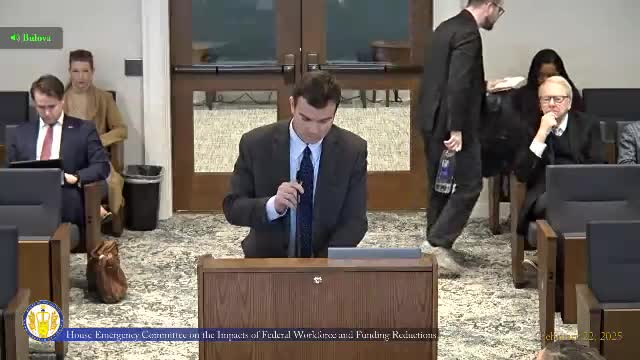Regional planners: Northern Virginia most exposed as roughly 315,000 Virginians work for federal government
Get AI-powered insights, summaries, and transcripts
Subscribe
Summary
Clark Mercer of the Metropolitan Washington Council of Governments told the House emergency committee that about 315,000 Virginians work in federal roles and that Northern Virginia and the National Capital Region face the largest exposure to federal workforce reductions.
Clark Mercer, executive director of the Metropolitan Washington Council of Governments, told the House committee that data show roughly 315,000 Virginians hold federal positions and that the National Capital Region as a whole is larger still.
Mercer said: "The number is closer as you see from last year's census, 315,000 federal workers in Virginia." He added that the National Capital Region employs roughly 400,000 federal workers, with "Hundred And 60 Thousand plus of those are in Northern Virginia." Mercer emphasized the role of contractors and the multiplier effects of high-paying federal jobs on local service sectors.
Mercer walked members through three categories of workforce movements he has tracked: probationary employees (who may be easier to separate), those accepting buyouts (about 75,000 accepted offers reported publicly), and formal reductions in force. He warned that available public statistics are fluid and incomplete and recommended that the committee secure better line-of-sight from OPM and agency payroll records to map which skill sets will be released and where private-sector demand exists.
He also highlighted potential non-payroll impacts: SNAP and Medicaid adjustments could increase food insecurity among up to an estimated 20,000 additional Virginians in Mercer’s modeling; changes to Defense Department procurement and a reported administration goal that could translate to multi-year defense reductions; and the possibility that GSA real estate decisions will shift office leases and federal footprints in Northern Virginia. Mercer urged the committee to refine census-tract level analyses to identify particularly exposed communities.
Mercer closed by recommending a focused effort to match skills of displaced federal employees with current job openings and to identify upskilling programs the state could scale.
